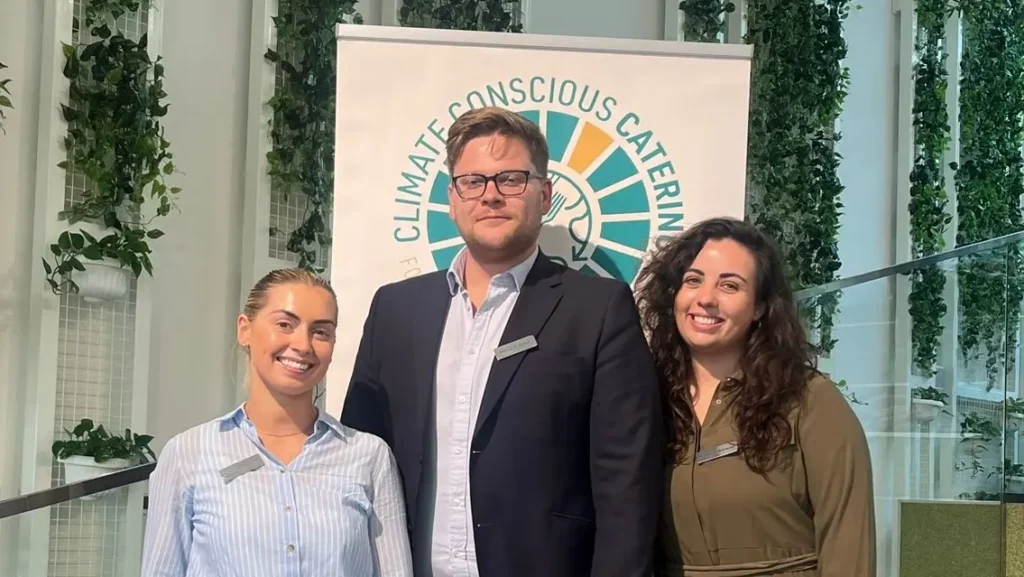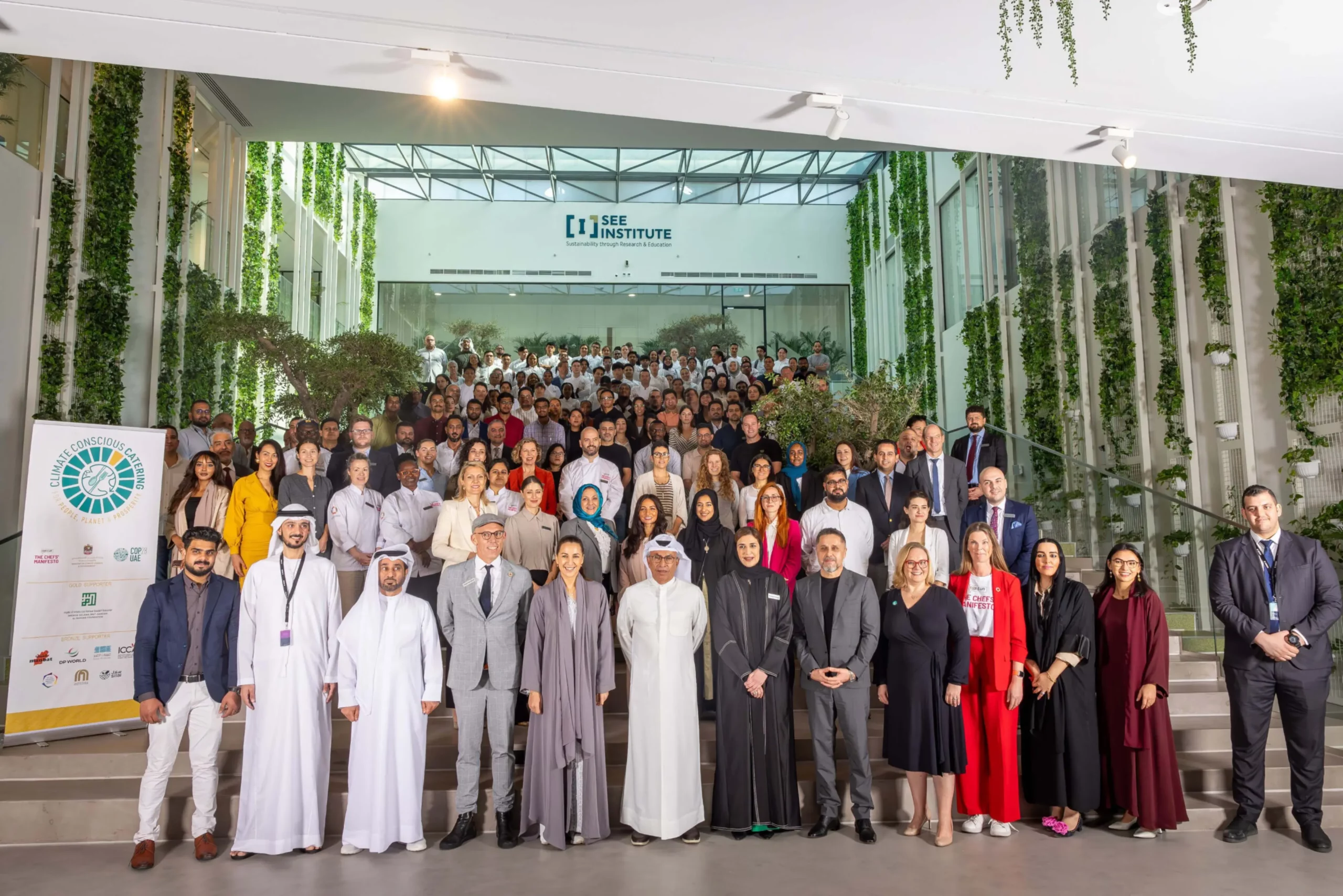Cooking Up a Sustainable Future: Insights from the Climate Conscious Catering Workshop
“Food is the unspoken secret weapon to the climate agenda”. The global challenges posed by climate change are unprecedented. In response, the food service and hospitality sectors are actively contributing to minimising the environmental impact of their foods, recipes, and menus.
COP28 is breaking new ground by putting food in the spotlight. Nutritics recently partnered in a Climate Conscious Catering event, collaborating with chefs and operators to reformulate menus for lower environmental impact, better health and even lower cost.
Below is a quick read on what happened at the event
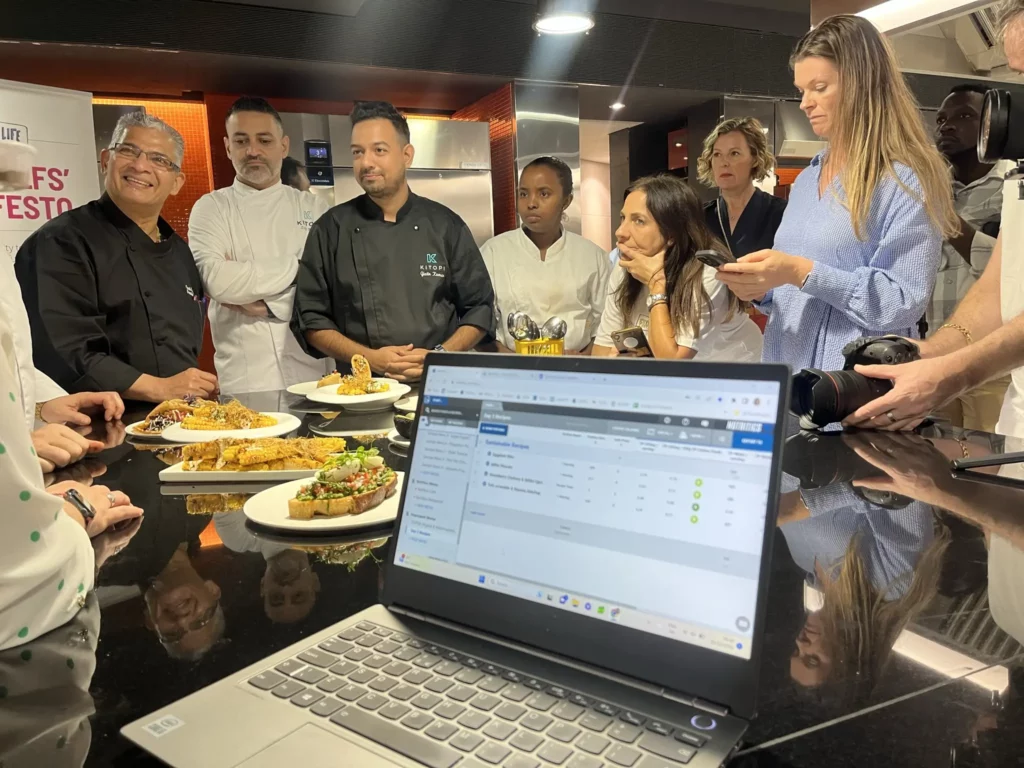
The 2023 United Nations Climate Change Conference (COP28) faces the ambitious task of providing 250,000 meals to over 60,000 daily visitors in a sustainable and eco-conscious manner. COP28 is reshaping the landscape of hospitality and foodservice businesses as they strive to hit the 1.5C target, with food taking centre stage for the first time.
To prepare for the November conference, event organisers hosted the Climate Conscious Catering workshop in Dubai. This four-day event brought together chefs, local food producers, scientists, nutritionists, and sustainability experts to showcase healthy, sustainable recipes that can also be tasty! Original and reformulated recipes were put to the test in the ICCA kitchen, with our Director of Sales, Richard Ward on hand to test all the amazing dishes!
Paul Newnham of Chef’s Manifesto, a chef-led initiative that focuses on creating a sustainable food system by empowering chefs as key players in connecting the farm to the fork, and our team led by Senior Technical Executive Karen O’Brien and Sustainability Lead, Laura Kirwan were on site to provide important data insights and metrics to ensure evidence based reformulation.
Nutritics software, and our Foodprint module, has been used to support large-scale reformulation of menus to be healthier and sustainable across the sector, but we couldn’t have been prouder to be working hands on with chefs and operators at a futuristic, science based workshop. Nutritics’ involvement went beyond just providing software; it included sharing industry-leading expertise, skills, training, and workshops, with learning and training being key to achieving menus and operations with lower environmental impact.
Day 1: A Grand Kickoff
The workshop began at the Sustainable Energy and Environment (SEE) Institute in Dubai, featuring presentations from Her Excellency Mariam Almheiri, UAE Minister of Climate Change and Environment, and Food System Lead. Nutritics’ Dr Laura Kirwan, and Karen O’Brien, Senior Technical Executive, presented Nutritics Software: Enhancing Nutrition, Sustainability and Transparency.
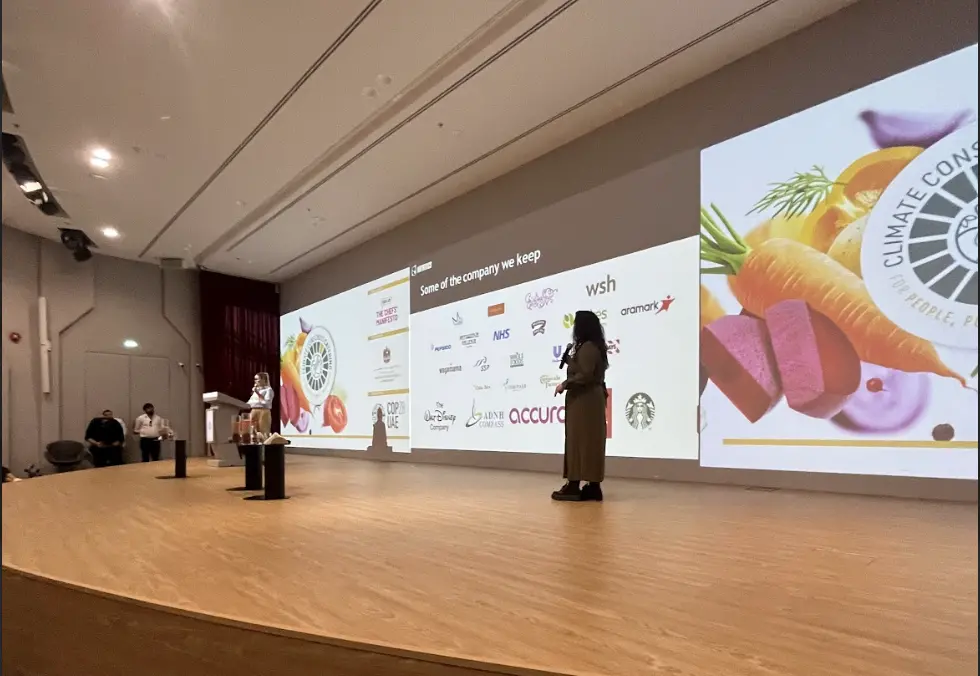
Day 2 and 3: Cooking with Purpose
The following two days were hosted at the International Centre for Culinary Arts (ICCA), where participants engaged in hands-on cooking sessions led by Nutritics and the Chefs’ Manifesto.
These sessions focused on reformulating recipes with sustainability in mind. Chefs used Foodprint to calculate the carbon and water footprint of each dish, helping them make informed decisions to reduce the environmental impact, while also finding alternative ingredients to ensure taste was never compromised. There were some exceptional dishes, Chef Justin Horne recreated the classic Fish and Chips using mushrooms that were so tasty not everyone got there fast enough to try it, and Chef Ali Honour created a zero waste dish with cauliflower that was “life-changing”.
The impact of reformulating menus during the Climate Conscious Catering workshop was remarkable. A comparison between a standard “traditional” menu and the new reformulated menu showed a significant reduction in the carbon foodprint, the full details of which will be published in a e-book published later this month.
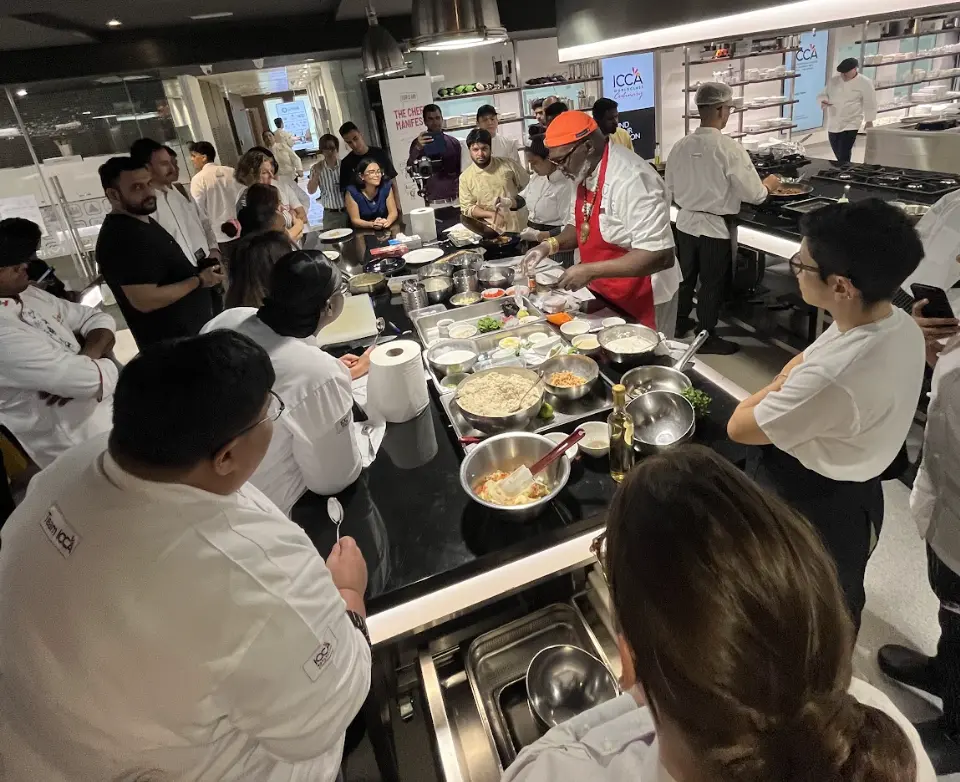
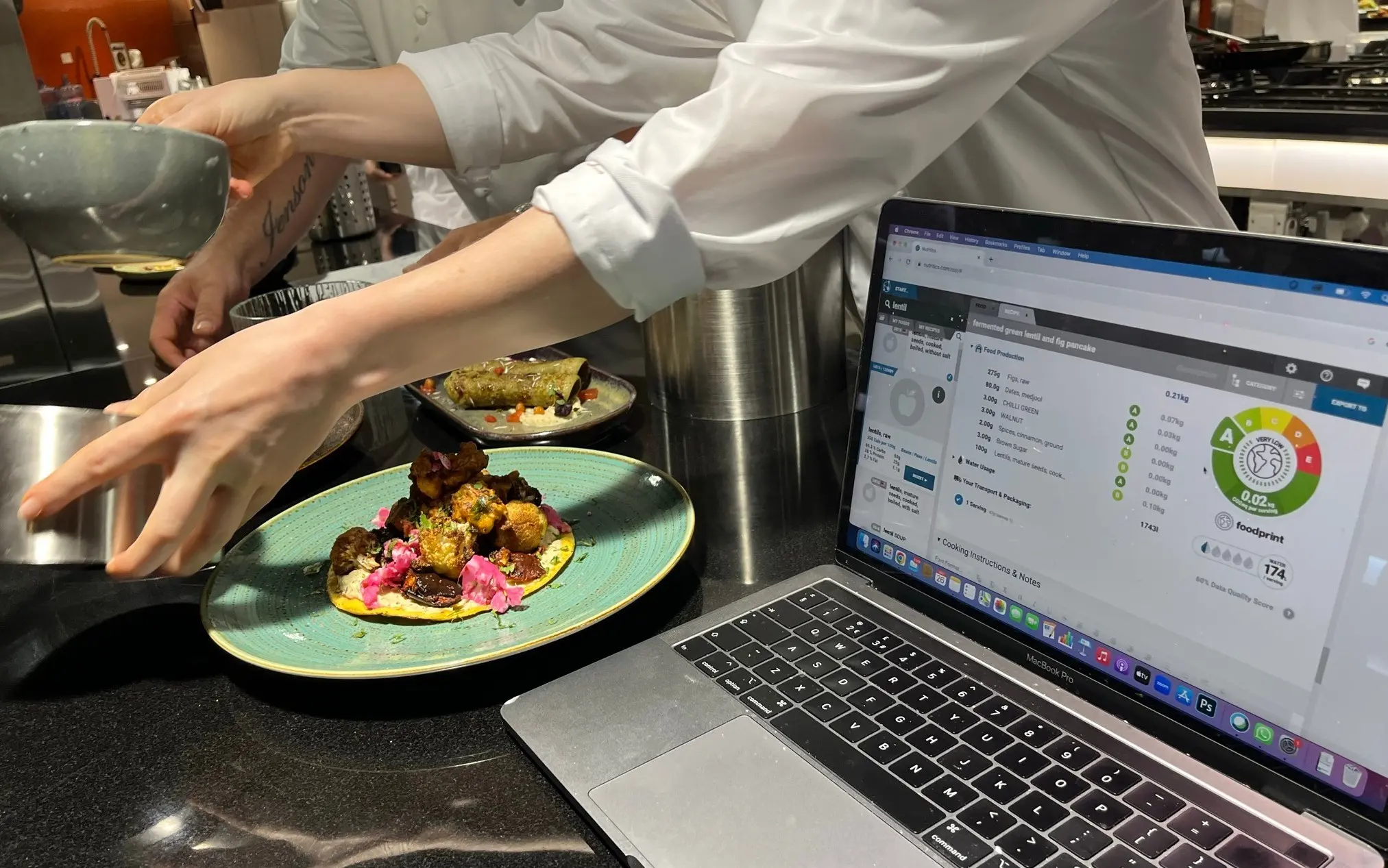
Day 4: Exploring Sustainable Farming Practices
On the final day of the workshop, participants visited Emirates Bio Farm, the UAE’s largest organic farm, and Bustanica, the world’s largest hydroponic farm, as well as the first vertical farm for Emirates Crop One. These tours showcased sustainable farming practices and demonstrated how local food production can be fundamental in creating sustainable outcomes for the sector.
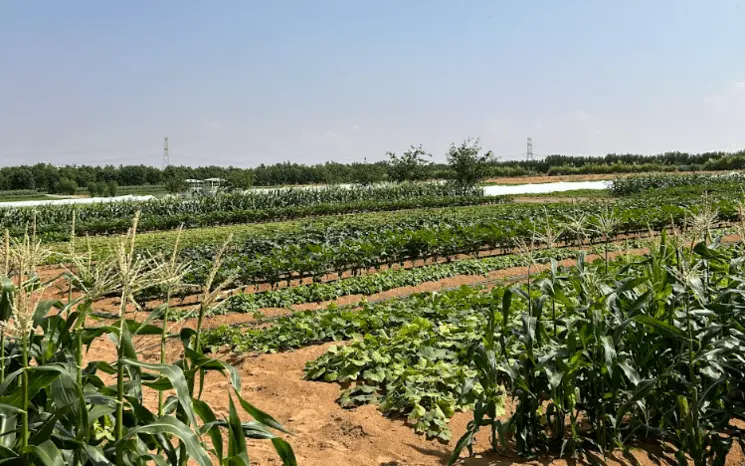
With the help of Foodprint, chefs, driven by a shared commitment to sustainability, reformulating much loved recipes. This workshop proved that sustainability doesn’t have to compromise taste, affordability, or nutrition and pushed the boundaries of innovation in the kitchen. Chefs and operators from over 60 vendors engaged in the hands-on, collaborative learning approach to sustainable cuisine. The workshop was an important step in shaping 1.5C aligned culinary offerings at COP28 and future events, emphasising the power of sustainable food choices.
Nutritics is set to compile our findings into an e-book, offering practical guidance on reducing carbon footprint and saving costs while delivering nutritionally balanced and delicious food.
